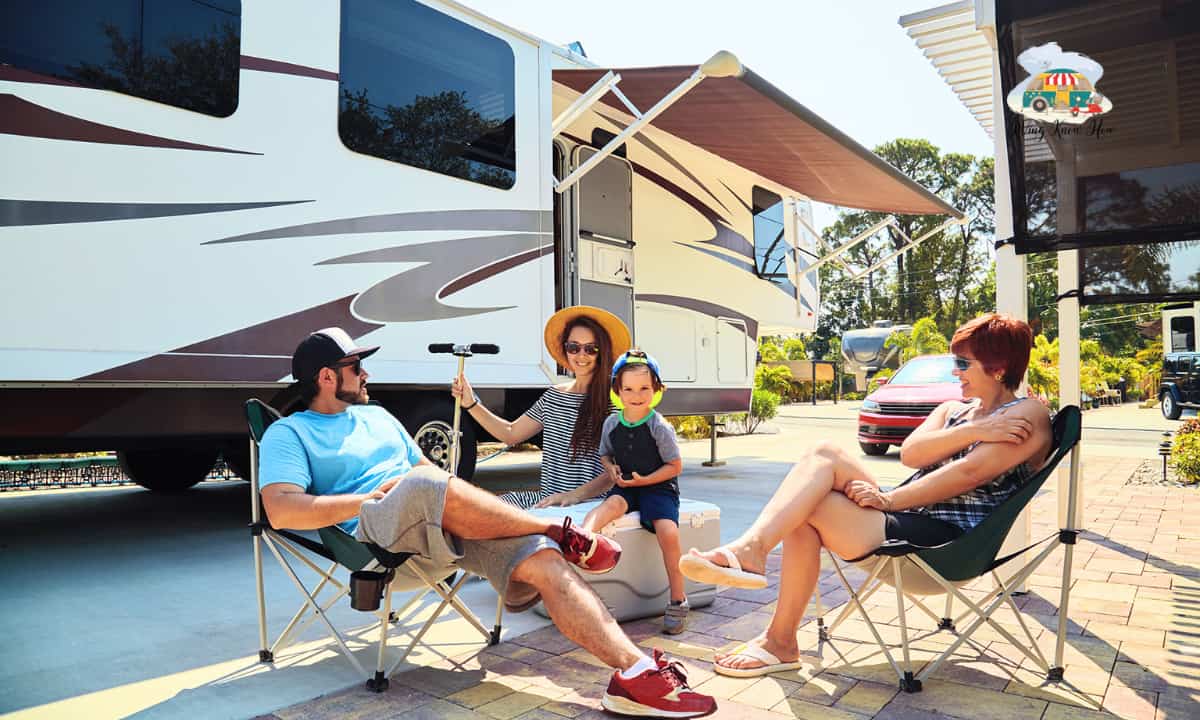There are a lot of things that need to go right to pull off the perfect RV adventure. Though nothing will spoil a great camping trip faster than problems with your RV fridge.
One of the biggest questions a lot of new RVers ask is: Will my RV refrigerator work without power from the battery?
Unfortunately, an RV refrigerator needs charge from a battery to run properly. Despite the durability and general simplicity of a three-way RV absorption refrigerator, a modest amount of electrical charge is still needed even if it is set to operate on propane.
Though the amount of power needed is relatively minimal. To understand your options for keeping your RV refrigerator running cool, we decided to take a closer look at how things work under the hood.
How Does A Three-Way RV Refrigerator Work?
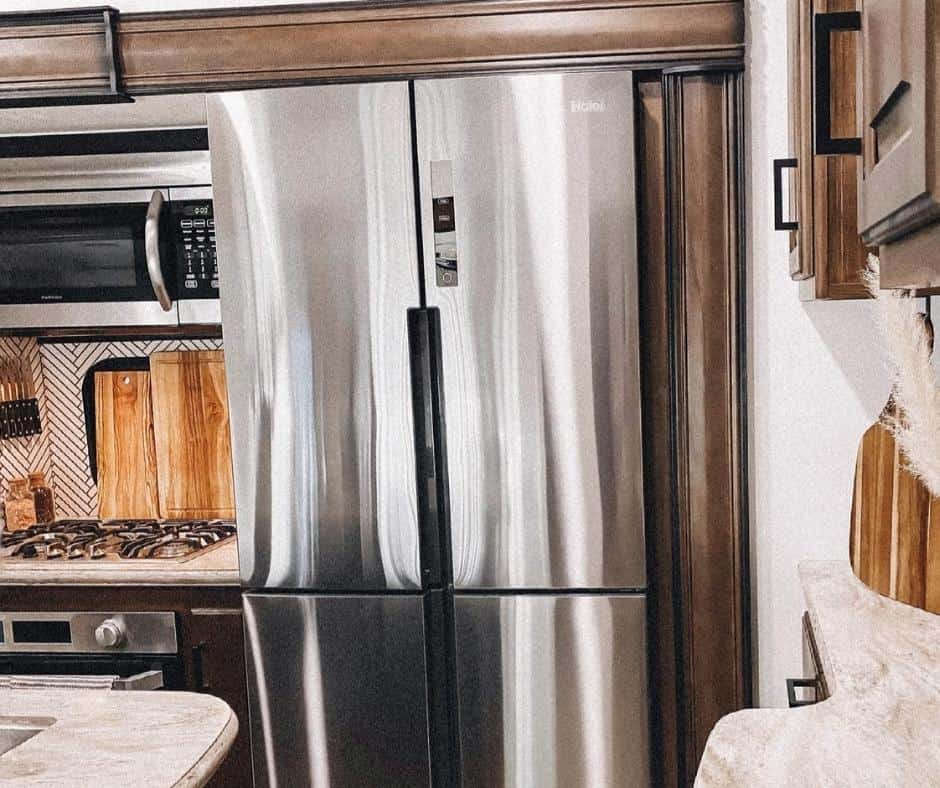
The term A “Three-Way Refrigerator” typically refers to an “Absorption RV Refrigerator” which has the ability to run off of both AC Power, or LP gas, or DC Power.
This gives it the ability to operate when connected to shore power at a campground, when connected to a generator, or your RV’s DC house battery bank.
In a pinch, it can even run off of propane to help reduce the power drain on your house batteries when you are boondocking off the grid.
RV Absorption refrigerators don’t have any moving parts. This gives them superior durability compared to traditional residential refrigerators which use a complicated compressor and other components to move freon through the system.
This makes RV absorption refrigerators better equipped to handle the bumps that RVs often experience when driving over rough roads.
When it comes to the matter of needing battery power to run a RV absorption refrigerator, the light inside, control panel, igniter of the propane system need a minimal amount of battery power.
The control board itself is designed to work on 12 Volt DC electricity to control the gas valve.
If your RV’s batteries are completely drained their own gas valve will close, and the liquid propane won’t be delivered to the burner and there won’t be any spark to ignite the burner element.
The burner is needed to heat the refrigerant to draw out the heat energy from the interior of the absorption refrigerator.
How Much Power Does An RV Refrigerator Need?
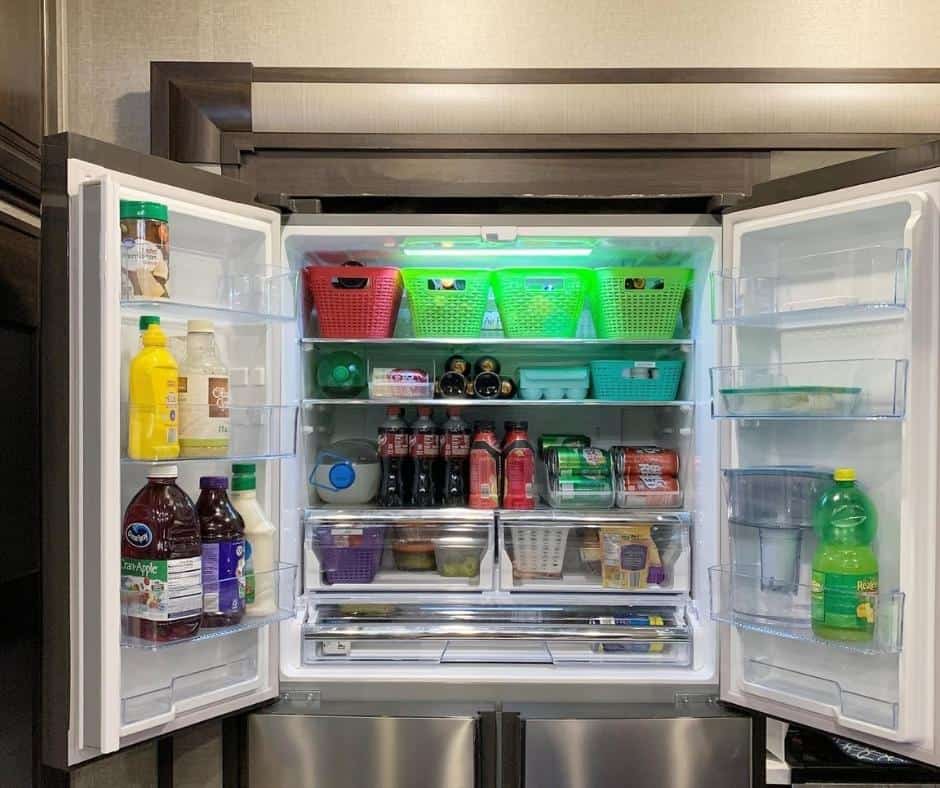
The amount of electrical charge an RV absorption refrigerator needs to operate properly will depend on the power source you are running it off of at that time.
Running An RV Refrigerator On AC Electricity
The only time you’ll be able to use AC electricity to run your RV absorption refrigerator is when you are connected to an RV park’s shore power hookups.
This typically only requires 15 to 20 Amps, and most RVs with shore power hookups have 15, 20, 30 or even 50 Amp connections.
Running An RV Refrigerator On DC Electricity
When it comes to connecting an RV absorption refrigerator to DC electricity, such as your RV’s house battery bank, the measure that matters is run time.
The larger the RB refrigerator is, the more charge it will draw. As a general rule of thumb, a 10 cubic foot RV refrigerator that is connected to a 12 Volt DC battery with a 50 Ah rating will run for 10 to 15 hours.
Just bear in mind that you will likely see a drop in performance once the RV house battery bank is drained below 50%.
Also lead-acid batteries can be damaged if they are routinely drained below half of their maximum charge.
So, it’s best to think of DC power from the RV battery bank as being a source of last resort.
Running An RV Refrigerator On Liquid Propane
Ironically, running the internal propane burner is one of the best ways to conserve power in an RV absorption refrigerator.
The amount of energy consumed is negligible. However, you will need at least 10.5 Volts of DC charge in your RV’s house batteries for the igniter to work properly.
2-way RV Fridges and Battery Usage
A so-called “Two Way RV Refrigerator” has a compressor built into it that is similar to the residential refrigerator in your home.
Only it is smaller and engineered for RV use. It uses DC electricity and has above-average energy demands.
This means you will need to frequently recharge your RV batteries with a generator or employ some other type of augmented power such as solar panels to keep your RV’s house batteries over 50% charge.
Can I Put A Residential Refrigerator In My RV?
You can technically put a residential refrigerator in your RV. Though you will need to have an inverter and a big enough house battery bank to power it.
This is typically prohibitive, and you will need to make an active effort to meet the huge electrical demand on the batteries.
It’s also worth bearing in mind that all the delicate moving parts in a residential refrigerator can be very vulnerable to damage from bumps on rough roads and being kept at an angle off of 90-degrees.
Conclusion
While a three-way RV absorption refrigerator will happily run for days on propane, it still does need electricity from the battery to operate properly.
The amount of power needed to power the circuit boards is minimal.
Though your RV house battery does need to have at least 10.5 Volts of power to properly open the liquid propane valve and fire the igniter.
If you find that your RV refrigerator isn’t running when set on propane, and you know you have a good supply of liquid propane in the connected tanks, you should check the charge level in the RV’s house batteries.
If it is less than 10.5 Volts, you will need to recharge the battery to get the RV refrigerator working again.

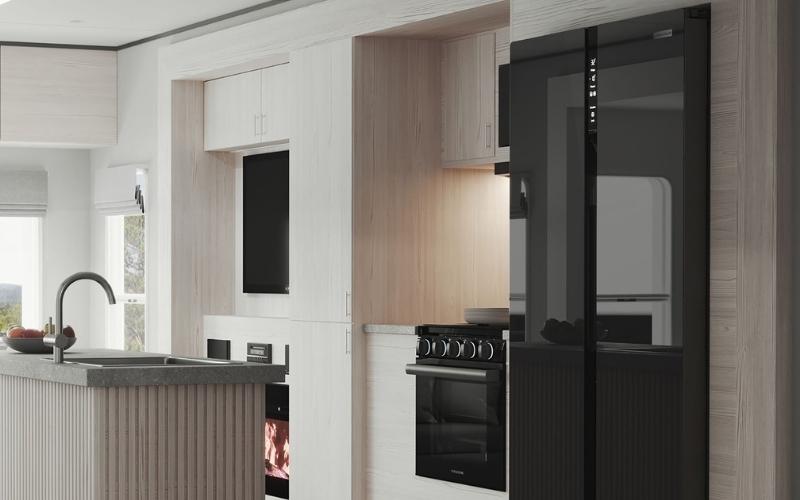


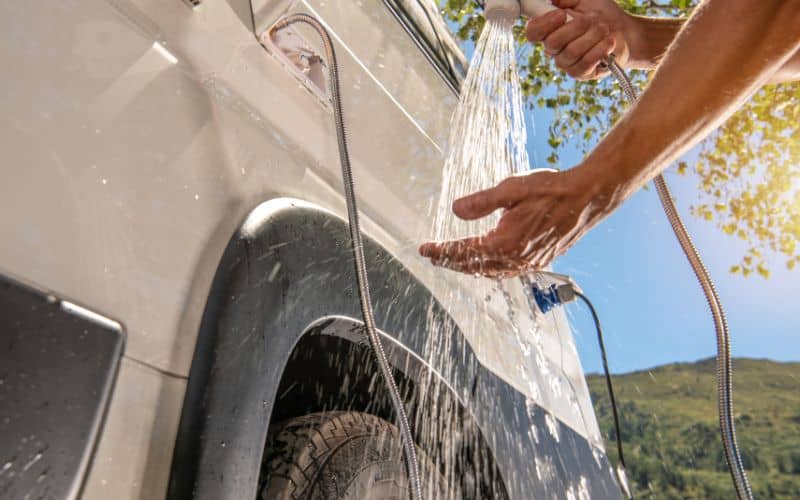
![The 5 Best RV Microwave Convection Ovens To Buy In [currentyear] 7 Best RV Microwave Convection Oven](https://www.rvingknowhow.com/wp-content/uploads/2020/07/Best-RV-Microwave-Convection-Oven.jpg)
